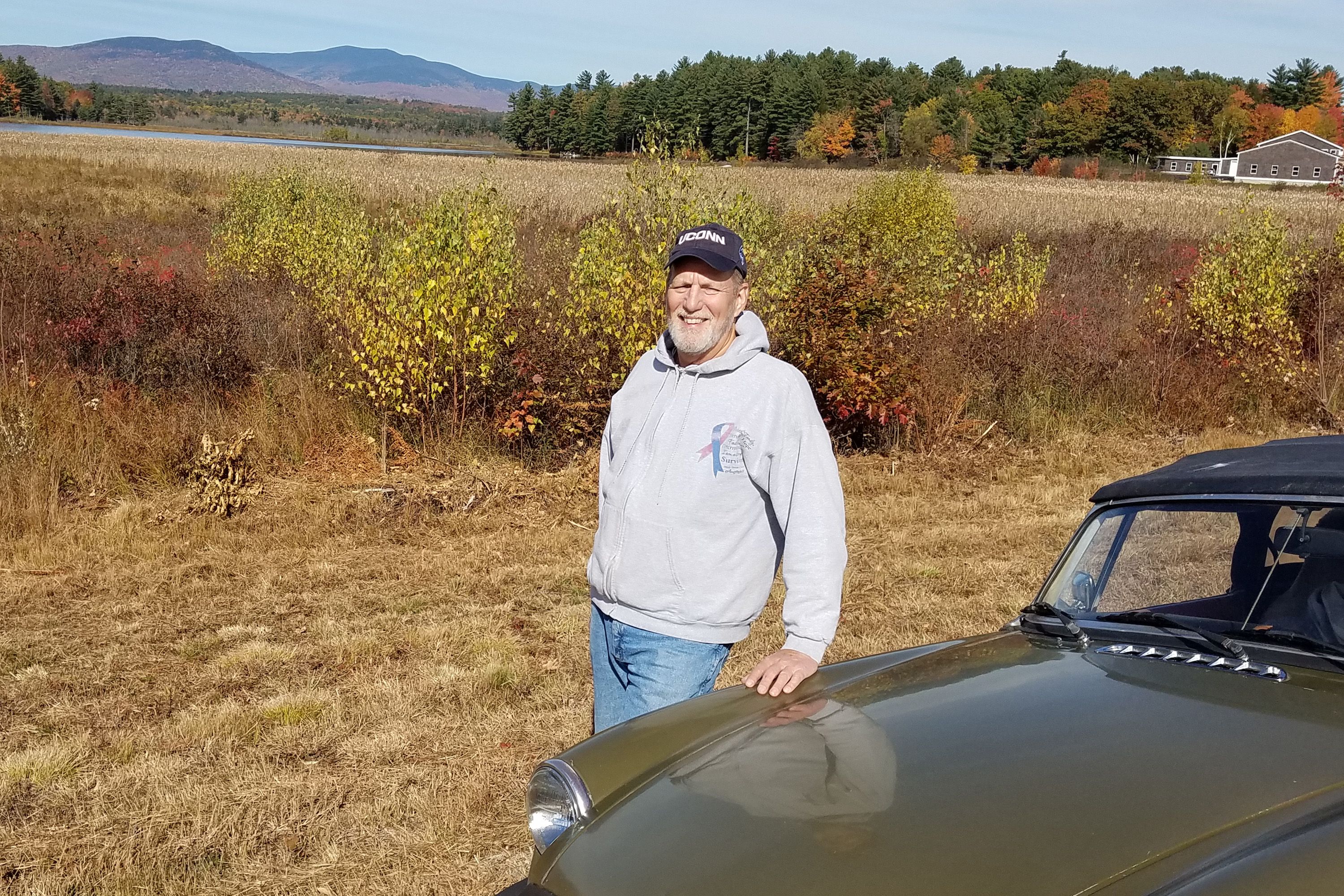Norman Smith, 65, of Windsor is a high school teacher, husband, father of two sons, and now, a breast cancer survivor.
The chances of men developing breast cancer are slim – they account for just 1 percent of all cases – but they are real. And, as was the case with Smith, it usually occurs in men after the age of 60.
In December 2015, Smith was working on his car when he happened to scrape himself while trying to squeeze underneath his vehicle. “It hurt a lot, and I never have had breast pain like that,” says Smith. “A few days later I was still swollen.”
Smith went to see his primary care doctor at UConn Health, Dr. Laurie Caines. After examining him, she advised immediate follow-up testing, including a mammogram. The breast scan came back positive, showing a suspicious lump: There was a tumor growing under Smith’s nipple.
A biopsy confirmed Smith had stage II breast cancer, meaning the tumor was growing and its cancer cells had spread to nearby lymph nodes.
“I couldn’t believe it,” says Smith. “I had never heard of men getting breast cancer.”
The UConn experience … made my cancer journey as efficient and easy as possible. — Norman Smith
Before starting treatment, Smith consulted with the Neag Comprehensive Cancer Center’s Genetic Counseling Program to gain greater insight into why he developed the disease and his future risk.
The risk factors for developing male breast cancer are a family history of the disease, genetic predisposition, radiation exposure, or hormonal irregularities in the body, according to Smith’s oncologist, Dr. Susan Tannenbaum, chief of the Division of Hematology/Oncology at UConn Health’s Carole and Ray Neag Comprehensive Cancer Center.
The genetic counselor at UConn Health, Robin Schwartz, discussed the option for genetic testing with Smith. A test could help provide information about his risks for other types of cancer such as prostate cancer, she says.
“Also, importantly we discussed how the results of his test could guide management and cancer prevention strategies for his family members,” says Schwartz.

Genetic testing would reveal if Smith had BRCA, an inherited gene mutation that places an individual at higher risk for developing breast cancer and also puts women at greater risk of ovarian cancer. A child born to a parent who carries the BRCA gene has a 50 percent chance of carrying the gene themselves, along with a 50 percent chance of passing it to each of their children.
“I had never heard of it either, but turns out I do have the BRCA gene,” says Smith. He recalled that his family had a strong history of breast cancer among the women on his father’s side.
He chose to undergo a double mastectomy surgery to remove his tumor, along with his remaining left and right breast tissue, with UConn Health breast surgeon Dr. Christina Stevenson. “Any odds of a recurrence was more than I was willing to work with,” he says.
After the successful surgery at UConn John Dempsey Hospital, Smith has continued to receive follow-up care. Many of his visits took place at the new Outpatient Pavilion at UConn Health, which opened earlier this year. “[The] facility is absolutely awesome,” he says. “Same great people caring for you, but the atmosphere is so quiet and relaxing that it really helps patients like me deal better with our cancer care visits and infusions.”
Smith is now passionate about raising awareness of male breast cancer for his sons and other men. He is mentoring other cancer survivors through the YMCA’s LIVESTRONG program to promote the importance of physical activity after cancer. And he has given lectures to students at UConn School of Medicine so they can learn from his experience as a patient.
“Thanks to UConn I am looking forward to a happy rest of my life,” he says. “The UConn experience was great. All my doctors proactively coordinated all my care needs. It really made my cancer journey as efficient and easy as possible.”



